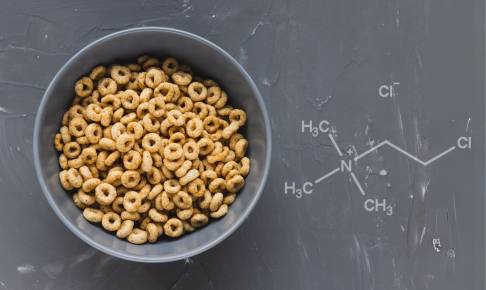The paradox of EU food safety: the 2017 fipronil scandal
A brief history
On 22 July 2017, Dutch consumers read in their newspapers that the eggs in their markets may be contaminated by a pesticide. In a few days, the alarm spread and became a European crisis, with shocking pictures of farmers and food companies forced to destroy huge numbers of eggs. In a few weeks it was clear that nearly all of Europe had been affected, as well as many non-European countries including Korea, Taiwan, and China.
Who was responsible? What had the farmers done? Were all European farmers illegally using a hazardous chemical to protect their animals without considering the risk to consumers? Of course this was not the case. First, 90% of farms involved were located in just one country: the Netherlands. Second, the farmers - or most of them - were not aware their hens had been exposed to a pesticide that should not have been in use on any farm. They simply wanted to clean their facilities to reduce red lice infestations that caused their hens to suffer.
Was it an accidental contamination occurring simultaneously on hundreds of farms? No, it was fraud. There was only one source and only three or four people who knew they were violating regulations. The authorities investigated and arrested the perpetrators, all of whom will be held accountable for their actions (two of them have just been sentenced to one-year jail terms).
Once again, the European food safety system showed its strength, all countries were quickly informed by the Rapid Alert System for Food and Feed (RASFF), the contaminated eggs were recalled, etc. There will always be those who exploit legal loopholes or try to cheat the system; even perfect regulations can’t stop all fraudulent or criminal activity. But the Dutch workers who were cleaning the farms claimed they did not know the pesticide was inside the product they were using, the farmers claimed they didn’t know they were selling contaminated eggs, and the public certainly didn’t know they were buying them.
If this is the case, how is it possible to prevent a double or triple fraud like this in the future? And was everybody involved really so innocent?
The investigation actually revealed that many people, especially in the Netherlands, knew that the magic product used in the poultry farms was so effective because of an illegal pesticide. This was well known not days before the scandal exploded, not weeks before, but almost one year before. Step by step, it became evident that aside from the initial couple of “smart” money-hungry perpetrators, something else was wrong.
Let’s go back to 2015 in northern Belgium at the border with the Netherlands. In a small village, a man selling products to clean poultry facilities was trying to figure out how to increase his sales. 80% of the poultry producers had big problems with red lice. The legal drugs prescribed by veterinarians were not working. Poultry producers were spending money for nothing. But all over the world, dog and cat ectoparasites similar to the red lice infesting the chicken facilities were easily killed with a biocide. Why not use it with hens? The salesman purchased the biocide (fipronil) from China and added it to “Dega-16”, a product containing herbs and esse
Download content now





















